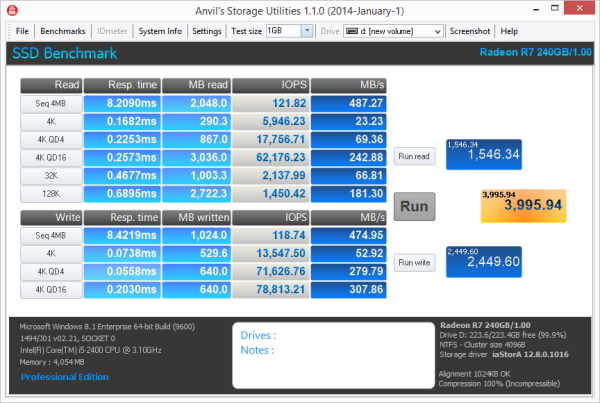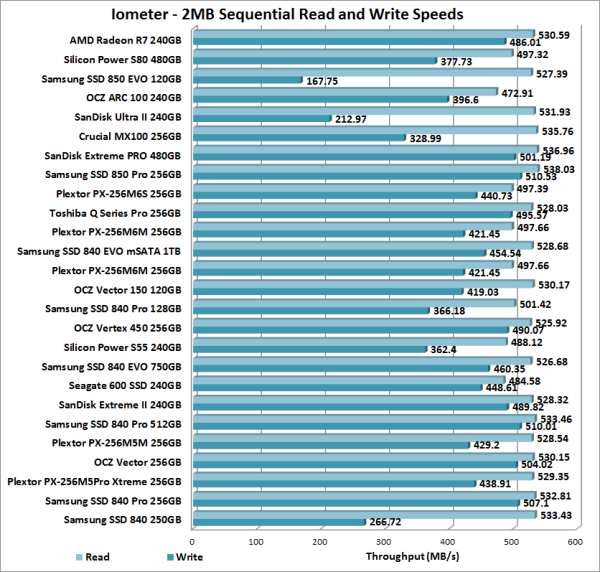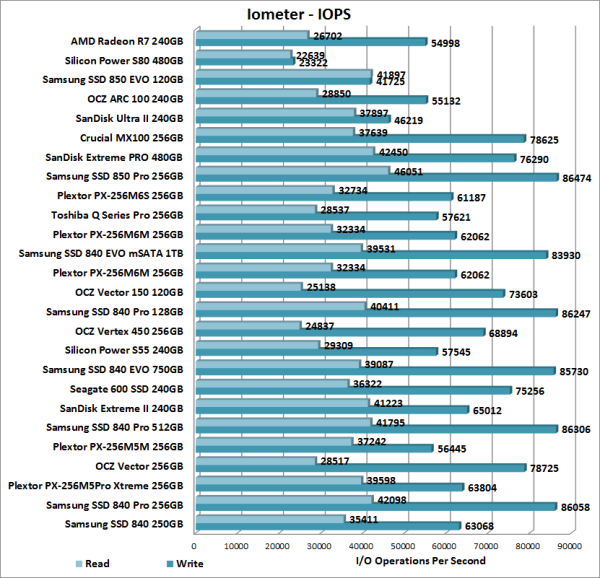Anvil's Storage Utilities:
Anvil's Storage Utilities is another new benchmark designed with SSDs in mind. The standard storage benchmark measures a drive's performance by testing its transfer speeds, access times and IOPS.

Iometer:
Lastly, I ran a series of tests using Iometer. This tool can be configured to benchmark a number of things. In this case, I used it to measure the Radeon R7's read and write speeds and the number of operations per second. The tests were run using random bytes and a queue depth of 3.

The Radeon R7's performance was very similar to what we saw in our other tests. The drive was able to read at 524.02 MB/s and write at 431.76 MB/s.

The Radeon R7 wasn't one of the faster drives we've tested when it came to random reads and writes. In our tests, the drive was able to read at 104.30 MB/s and write at 214.83 MB/s.

According to AMD, the 240GB Radeon R7 is capable of 95,000 IOPS when reading and 90,000 IOPS when writing 4K blocks. In our tests, the drive reached 26,702 random read IOPS and 54,998 random write IOPS. The only way I came close to OCZ's numbers was to increase the queue depth. With the queue depth set to 32, the Radeon R7 reached 91,581 random read IOPS and 81,070 random write IOPS.

